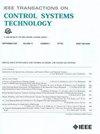小型固定翼无人机风估计的不变扩展卡尔曼滤波
IF 3.9
2区 计算机科学
Q1 AUTOMATION & CONTROL SYSTEMS
引用次数: 0
摘要
本文介绍了一种用于小型固定翼无人机(UAV)风估计的不变扩展卡尔曼滤波器(EKF)的设计和实现。首先,证明了无人机的动力学,扩展到包括一个平凡的风速动力学模型,相对于李群$\text {SE}(3)$,即刚性变换的特殊欧几里得群是不变的。还表明,包含飞行器惯性状态和空速的输出相对于$\text {SE}(3)$是等变的。基于这些分析结果,设计了扩展状态方程的不变EKF,并在实验飞行数据上进行了实现。对于两种标称飞机运动:恒定高度、机翼水平飞行和恒定高度转弯飞行,将不变EKF的风估计与传统EKF的风估计进行比较。然后将获得的风估计与使用飞机空气数据单元(包括迎角(AoA)气流叶片、侧角气流叶片和基尔探头)重建的风测量数据进行比较。实验结果证实了不变EKF在风估计精度上优于传统EKF的预期。本文章由计算机程序翻译,如有差异,请以英文原文为准。
An Invariant Extended Kalman Filter for Wind Estimation Using a Small, Fixed-Wing Uncrewed Aerial Vehicle
This article presents the design and implementation of an invariant extended Kalman filter (EKF) for wind estimation using a small, fixed-wing uncrewed aerial vehicle (UAV). First, it is shown that the UAV’s dynamics, extended to include a trivial model for the wind velocity dynamics, are invariant with respect to the Lie group $\text {SE}(3)$ , the special Euclidean group of rigid transformations. It is also shown that an output comprising the vehicle’s inertial state and airspeed is equivariant with respect to $\text {SE}(3)$ . Based on these analysis results, an invariant EKF is then designed for the extended state equations and is implemented on experimental flight data. Wind estimates from the invariant EKF are compared with estimates obtained using a conventional EKF for two nominal aircraft motions: constant altitude, wings level flight, and constant altitude turning flight. The obtained wind estimates are then compared with wind measurements reconstructed using data from the aircraft’s air data unit comprising an angle of attack (AoA) flow vane, flank angle flow vane, and Kiel probe. The experimental results corroborate the expectation that the invariant EKF outperforms a conventional EKF in wind estimation accuracy.
求助全文
通过发布文献求助,成功后即可免费获取论文全文。
去求助
来源期刊

IEEE Transactions on Control Systems Technology
工程技术-工程:电子与电气
CiteScore
10.70
自引率
2.10%
发文量
218
审稿时长
6.7 months
期刊介绍:
The IEEE Transactions on Control Systems Technology publishes high quality technical papers on technological advances in control engineering. The word technology is from the Greek technologia. The modern meaning is a scientific method to achieve a practical purpose. Control Systems Technology includes all aspects of control engineering needed to implement practical control systems, from analysis and design, through simulation and hardware. A primary purpose of the IEEE Transactions on Control Systems Technology is to have an archival publication which will bridge the gap between theory and practice. Papers are published in the IEEE Transactions on Control System Technology which disclose significant new knowledge, exploratory developments, or practical applications in all aspects of technology needed to implement control systems, from analysis and design through simulation, and hardware.
 求助内容:
求助内容: 应助结果提醒方式:
应助结果提醒方式:


